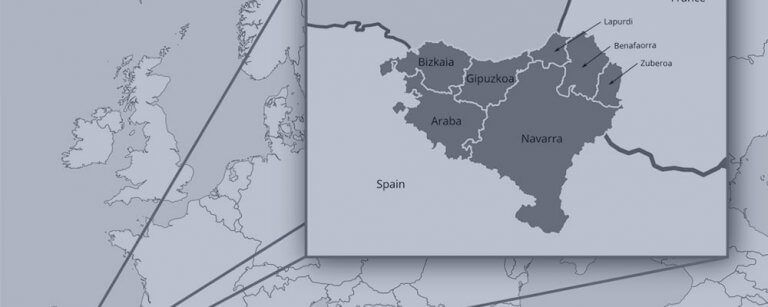Blog
On July 13, 2017, the parliament of the United Kingdom, along with Her Majesty’s Revenue and Customs (HMRC), announced that the roll-out of the ‘Making Tax Digital for Businesses’ will be delayed until April of 2019. This initiative, first decided upon in December of 2015, is an effort by the government of the U.K., to digitize […]
Singapore recently published an update to their CRS Frequently Asked Questions (FAQs). Last updated in February 2017, the July 2017 update provides clarity and additional guidance in a number of areas that concern Singaporean financial institutions reporting under the Common Reporting Standard. These updates include the following sections. Section B.5, Reserved Investment Power Trusts: This […]
Organizations operating in the Basque region of Spain will soon be required to comply with SII reporting requirements. As reported in this forum, effective July 1 most companies operating in Spain are now required to transmit information to the Spanish Tax Administration (AEAT) regarding purchase and sale transactions within a few days of invoicing. Today, […]
The Secretary of the Treasury for the Commonwealth of Puerto Rico announced they plan on encouraging the local legislature to adopt significant tax reform measures, including a number of items that will impact sales tax (locally known as IVU). The details of the proposed reforms have not been released but the Secretary has indicated that […]
The United Kingdom has announced plans to eliminate its “use and enjoyment” provision for VAT on business-to-consumer (B2C) telecommunications services used outside of the European Union. Schedule 4A of the VAT Act of 1994 currently treats telecommunication services used outside of an EU member state as taking place where consumed, even if the service would […]
On July 12, 2017, the Tribunal Administratif de Paris struck down a bill of more than 1 billion euros assessed by the French government against Google for back taxes, including VAT. The Tribunal found in particular that Google did not have sufficient human and technical resources in France to subject the company to VAT; instead, the […]
The Federal Ministry of Finance has released guidance related to a VAT exemption on storage fees for frozen reproductive material. When frozen gametes are stored for therapeutic purposes – such as contributing to a pregnancy as part of fertility treatment – the storage fee is properly VAT exempt. Absent a direct therapeutic purpose, however, storage fees for […]
The Financial Administration of the Czech Republic recently published amended filing instructions for the “Kontrolní hlášení”, or the “Check Report” form, which is a required filing for all taxable persons under the Czech VAT Act. Among the changes to the instructions is, first, a new requirement for contract companies (partnership-structured entities) to now file by individual partner instead […]
Earlier this month, bill number 34755, which would modify the treatment of vouchers under the Dutch VAT Act, was introduced to the Dutch Parliament. The proposed law would differentiate between single use vouchers, defined as vouchers where the place of supply and amount of VAT on the supply are known at the time of the voucher’s issuance, […]
The Danish Customs and Tax Administration (SKAT) has announced a limitation on the VAT exemption for supplies of blood plasma. Previously, the SKAT had allowed for exemptions on all deliveries of the human blood plasma. Going forward this exemption will no longer apply to supplies of plasma to companies intending to use the plasma in […]
Getting a VAT refund has become simpler for suppliers registered in Romania under the MOSS scheme. In the past, taxable persons established outside the EU who supplied electronic services in Romania were required to appoint a tax representative. But on July 13th, the Fiscal Administration (ANAF) released a press release announcing that in accordance with […]

Businesses in two of Spain’s autonomous communities – Basque Country and Navarra – will soon be subject to Spain’s Immediate Supply of Information on VAT (SII) mandate. On July 1, 2017, Spain launched SII, requiring companies operating in the country to electronically submit ledger and invoice details. With the extension into two of Spain’s autonomous […]
The Governor of Puerto Rico has signed into law a bill (PC 1133) that changes the frequency of sales tax remittance. As reported earlier in this forum, the new rule requires most taxpayers to pay sales tax in the same month as it’s collected, in two monthly installments: The first payment is required on the […]
The Secretary of the Treasury for the Commonwealth of Puerto Rico announced that they plan on encouraging the local legislature to adopt significant tax reform measures, including a number of items that will impact sales tax (locally known as IVU). The details of the proposed reforms have not been released but the Secretary has indicated […]
Organizations operating in the Basque region of Spain will soon be required to comply with SII reporting requirements. As reported in this forum, effective July 1 most companies operating in Spain are now required to transmit information to the Spanish Tax Administration (AEAT) regarding purchase and sale transactions within a few days of invoicing. Today, […]

I follow global tax compliance across continents closely and what can be seen is a clear trend of Tax Administrations (TAs) introducing increased technology-based real-time tax controls. Such controls include e-invoice clearance, e-ledgers and e-accounting, among others. Unfortunately, I’ve seen many real-life cases in different countries where the TAs issue a regulation that may make […]
Tax compliance has evolved at a rapid pace in recent years. As governments go digital, loopholes are closing and reporting timelines are shrinking from weeks to milliseconds. The old way of doing things isn’t enough for the new world of rapid-response compliance. But these new challenges can also foster new opportunities. Businesses are taking a […]
The state of Jammu and Kashmir has joined the rest of India by enacting the GST, a week after it was introduced to the rest of the country. Amidst strong opposition, the government of Jammu and Kashmir passed the Jammu and Kashmir Goods and Services Tax Act on July 7th. The Act, and related orders, can be […]